校友归来:留学一年后,回望成长中的起起伏伏
他们乐于分享自己的大学申请经验和大学的学习生活——无论身在哪里,无论要克服多少小时的时差。
最终,3位正在美国和加拿大读书的同学成为工作坊嘉宾。他们分别在综合性大学、文理学院、艺术专业大学学习。
他们毫无保留地分享,诚恳回顾自己的选择和得失,更坦然面对生活中的高高低低,深深打动了听众,引发家长的热烈回应,原定1个小时的活动整整延长了1倍多的时间。
坦诚、淡定,乐观、韧性,3位学生的表现让人不禁想用这句话来形容他们:你未必光芒万丈,但始终温暖有光!
对于考虑出国留学的家庭,启明星校友们的宝贵分享具有重要的参考价值,我们扼要分享在此:
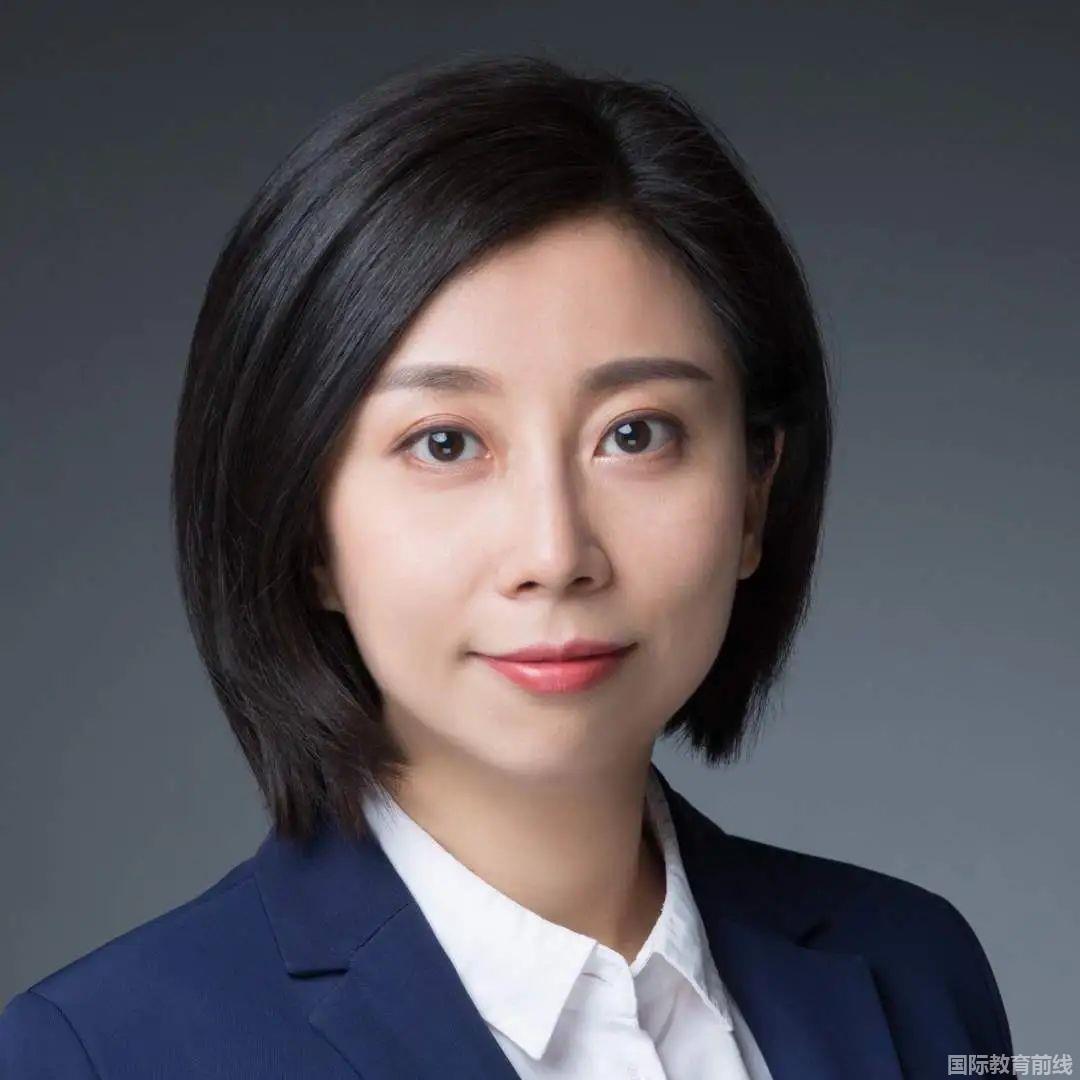
主持人 梁珊
启明星学校
大学升学顾问
副主任
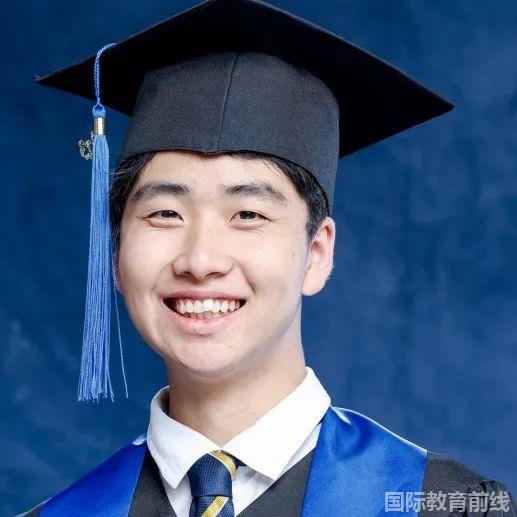
陈华霖
加拿大麦吉尔大学
中学社科教育专业
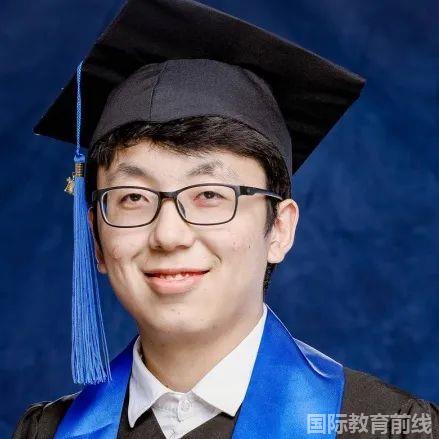
增周加措
美国阿勒根尼学院
未定专业

谢雨菲
艾米丽卡尔艺术和设计大学 纯艺专业
说说大学
梁老师:你们来自不同类型的大学,请分别介绍一下你们的课堂规模?和教授的互动如何、校园活动是什么样的?
Nick:我们比较大的课堂是600人左右,最小的课堂是60人左右。教授和助教每周都有1小时的答疑时间,每个来访者可以分到5分钟左右,当然,我们也可以利用上课前后的时间,和他们进行简单的交流。我们也会上助教主导的课程。学校有200多个社团,因为人多,无论参加什么社团你都能找到朋友。
Jeremy:我们的课堂一般是5到6个人,如果到20人就算很大的课堂了。每堂课都是教授来教,助教只负责批改作业。我们和教授有更多的时间交流,一个人可以约到20分钟到40分钟的答疑时间,而且学校会有高年级学长帮你免费补课。学校社团很多,足球、篮球、电竞社团,我都参加了。校园生活是非常丰富的,让人有很强的归属感。
Dora:我们学校也是比较小的学校,我通常上的课有20个人上下,也有大课,大约100个人。和教授约答疑时间也比较灵活,只要写了邮件,一般来说一两个小时内就能和教授交流。
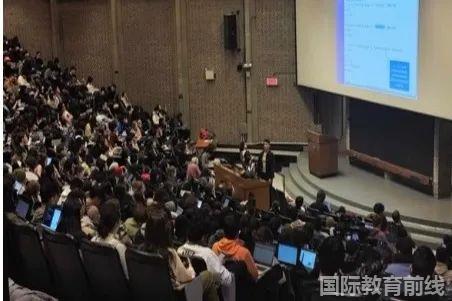
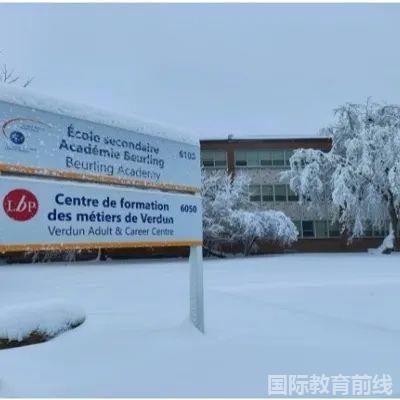
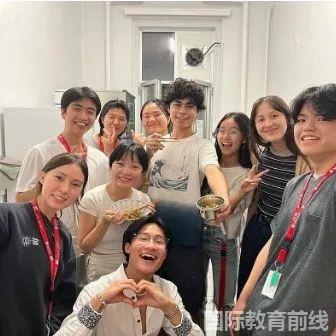
Nick的大学生活
梁老师:入学后的学习和你们之前的计划相比有不同吗?你们有为未来做什么规划吗,比如实习?
Jeremy:我原本想学传媒专业,但上课后我发现,这个专业也许并不适合我。我就去选了其他一些课程。我发现,学校有很多很好的经济学教授,我也在课堂上和他们建立了不错的关系,所以现在我有了学经济学专业的想法。另外,我也在考虑利用学校的资源找几份兼职,积累一些工作经验,好应对未来激烈的就业竞争。
Dora:上了大学之后,我真正认识到什么叫“人外有人,天外有天”。在大学里,我发现有太多的人画的比我好,创意更好更深刻的人大有人在,所以我需要自主安排一些艺术技能的学习,比如练习动画插画、绘本的创作技能,不能再像之前那样被动地学习。
梁老师:Dora的分享也提醒我们,在大学申请和入学后选课的时候,要选择自己有优势的专业或课程,不然大学里的学习就可能比较困难。上大学升学辅导课程讨论选课和选专业时,我们也都跟大家提示过,到了大学里,周围的同学都是各自高中里和你擅长同样科目的人,不像在高中的时候,周围的同学擅长不同科目,你自己还是比较容易脱颖而出的。
聊聊申请
梁老师:你们都在自己喜欢的大学读书,有没有特别想要分享的申请经验,为学弟学妹提些建议?
Jeremy:我有两个建议。首先,IB学生的压力很大,你不能在某一方面花太多时间,你需要balance一下,做好时间管理。可能你在10年级感觉是很舒服的,压力没有那么大,但到了11年级就可能感觉很难很难,到了12年级,有了大考的压力,你的压力会更大。这个时候,你还得兼顾申请、准备文书的工作。
我们的大学升学指导Ms. Warehall有过做大学招生官的经历。我记得她说过,每天招生官要看很多来自不同国家的申请者的文书,不会把全部内容都看完,申请者需要有些闪光点吸引到招生官。而这些闪光点,不是你一稿两稿就能写出来的,需要你进行很长时间的思考来挖掘,然后和家长、老师进行沟通,让自己脱颖而出。
另一个建议是,申请的时候要合理利用资源,多和老师沟通。比如准备文书是需要很长时间的,不是一稿两稿就能完成的。听取了别人的建议后,你会发现能改的地方有很多。我准备文书的时候就比较好地利用了学校的资源,我们的升学指导老师Ms. Warehall和梁老师老师都给了我非常好的辅导。
Dora:申请大学的时候,我要兼顾学校的课程、语言考试,另外还要准备一个艺术作品集。对我来说最大的困难是怎么平衡好这些工作,克服心理上的紧张和焦虑。在很长一段时间里,我都处于一种担心中。我会愿意去和一些相关的老师多进行沟通,可以获得一些有用的经验和一些精神支持。
关于艺术生要准备的作品集,我的建议是,它的主题要更多地表现你自己想要表达的东西,最好是基于你的真实经历或是真实情感,一定要是最真实的。这样做出来的作品才一定是有个人特色和“有温度的”。
进行作品集创作的时候,可以去看看你理想的学校的网站,翻翻被录取学生的作品和案例,或者是学校的毕业展,这样就能了解到这个学校的风格是不是适合你。
同样还要注意作品集的准备时间,一定不要拖,因为一直会有很多作品需要你创作。如果进入录取的第二轮,有些艺术院校还会给命题创作,会让你耗费很多时间。
在这里我还想特别提醒的是,在你决定学艺术之前,一定要反复思考这个专业是不是你愿意为之奋斗一生的。因为就我个人经历来说,做完作品集之后,整个人对于艺术的热爱其实消减了一大截,因为整个创作过程其实是很让人疲惫的。所以,你一定要慎重考虑,是不是真正喜欢艺术。

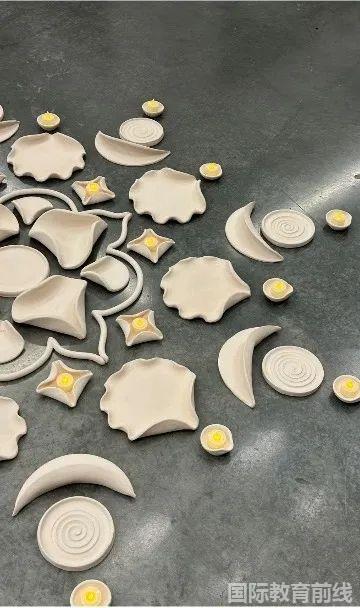
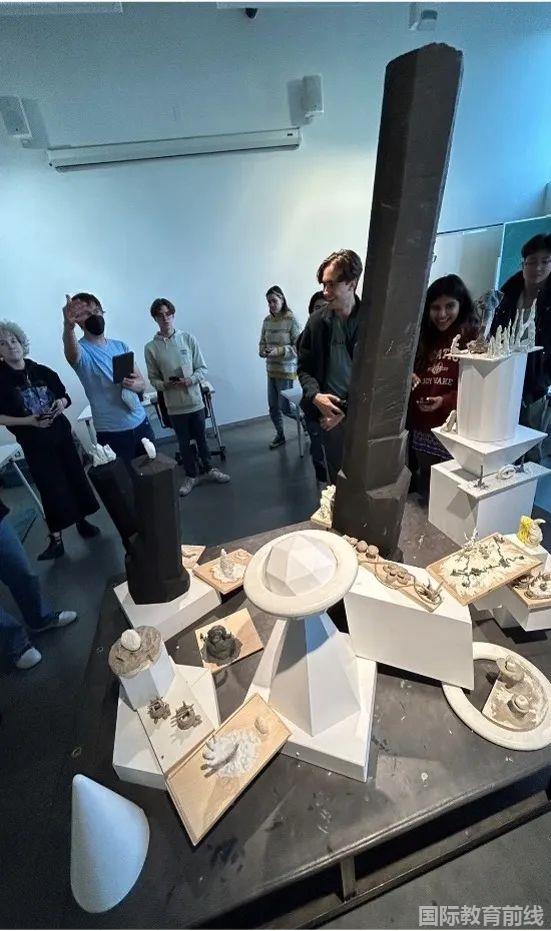
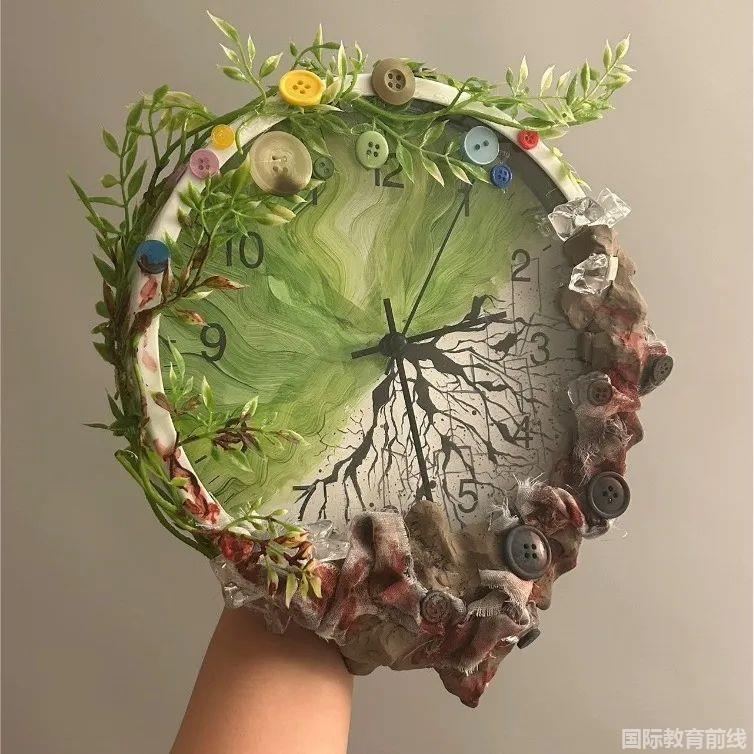
Dora的校园生活
梁老师:申请过程中,你们觉得影响最大的活动是什么?你们是怎样找到这些活动的?
Nick:当时对我影响最大的活动,就是在启明星参加的社会创新项目。从10年级开始直到我们毕业,我们一直都在参加相关的活动。这个项目帮助我们锻炼了各种各样的能力。比如说,我们为自己的社会创新项目做路演的时候,锻炼了展示方面的能力。举办社会创新日,我有机会去和低年级的学生互动,作为临时老师走进课堂,和学生们分享我关心的事情。还有,社会创新项目是很独特的,在我们的申请中是很特别、很亮眼的。
Jeremy:我觉得有两个活动。一个是Nick刚刚提到的社会创新项目。启明星是全中国为数不多的、一直在做这个项目的学校。在启明星最独特的是,它不是只属于高年级的项目,而是有不同年级和跨校区的合作。这个项目让我意识到,我们的学习不是只停留在书本和成绩上,而是可以有更多的问题可供了解并且采取行动,比如联合国可持续发展目标涵盖的问题。
第二个活动也是我们的学校提供的参加哈佛商赛的机会。那是我第一次参加商赛,经历也是非常独特的。我们在那个项目上花了很长的时间,团队合作的能力得到了很大提升。
Dora:我做的比较重要的活动也是在社会创新项目里。在我们的创业项目里,我负责的是美工设计部分。在这个过程中,我可以更明确的体会到,当我把艺术作为一个真正的工作或者说作为一个商业行为,我应该注重哪些因素。在社会创新日活动里,我也给学校设计了一些周边,我也给学校设计了20周年的logo,这些都让我对艺术创作的自信心更强了,对于我后续的申请也是有很大帮助。
梁老师:我还想请大家分享一下,怎么看待大学排名?你们是怎么筛选出来自己心仪的大学名单的?另外,我也要特别问下Jeremy,为什么后来放弃了QS排名前50的大学,而选择去了一所比较低调的文理学院?
Nick:从10年级开始,我们的大学升学指导老师就一直告诉我们:排名绝对不是拿来衡量一所大学的唯一标准。对我来说,除了考虑学校排名,我也要考虑城市的气候、所在地区是不是我可以适应的环境、奖学金、申请的具体专业的排名、师生比等等。我有个同学还会考虑大学的食堂。
Jeremy:我原来申请到的大学QS排名是19,说实话大学的QS排名之所以高是因为它的教授的科研水平,还有它的研究生项目。我觉得这不应该成为我们本科生择校的标准。
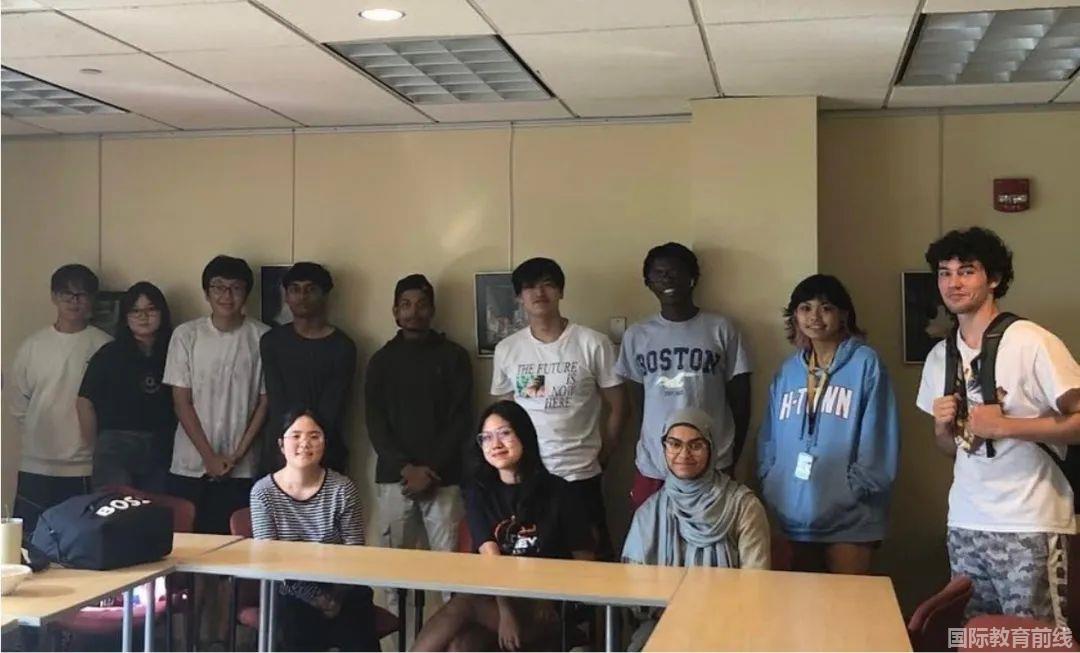
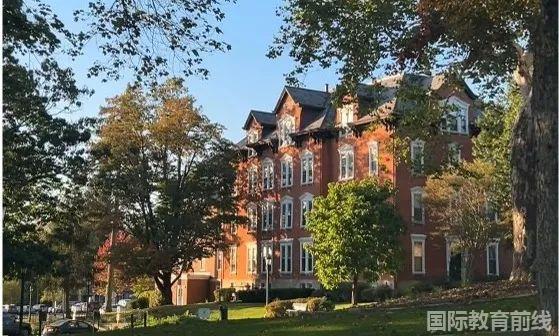
Jeremy的大学生活
另外,申请现在这所文理学院的过程中,校方给我写过很多邮件。渐渐地我注意到,学校对我很有诚意,各种安排很妥当。而且我在启明星上学的经历,也让我对文理学院这种小而精的教学很熟悉,很喜欢。这里师生比很低,让我很有归属感。
还有,我想要体验不同的文化,这是我留学的原因,而我原来申请到的大学有很多中国留学生。这所文理学院的中国人非常少,包括我在内只有7个,这也让我结交了很多外国朋友,体验了不同的文化。
这些都是我决定来Allegheny college的原因。
谈谈压力
梁老师:我们也要谈谈压力问题,比如学习压力大,早申没有拿到梦校录取的压力。还有,申请这段时间里,家长是怎么支持你们的?
Nick:知道早申没能拿到录取的时候,我是花了段时间缓了一下的。当时我不断提醒自己说,大学申请是一个过程,我应该还是能去入读一所匹配我的期待、匹配我的能力的大学的。另外我也这样分散对早申结果的注意力:就是去进一步调查我正在申请的RD学校,进一步去完善我给这些学校的申请,让为自己再设定一所梦校。
在这个过程中,我的爸爸妈妈会支持我的决定。他们相信我的学习状态,也很相信升学指导老师给我的建议。
我建议家长鼓励学生自己做大学的调查,因为家长向学生转达自己的调查结果时,学生不一定能感觉到那些大学的吸引力。我觉得,自己亲自调查发现的吸引之处,是让学生喜欢上一所大学的真正动力。
Jeremy:一定要保持积极乐观的心态。如果有情绪问题,一定要和老师、家长沟通,调整接下来的申请计划,他们永远是你的后盾。我也同意,大学是学生来读,申请大学的事情应该由学生来做,家长要做的是支持和鼓励。
Dora:我申请的都是加拿大的学校,所以没有早申问题。我想分享的是,我爸一开始也不理解我的专业,担心我未来就业会比较困难,但随着我对专业方向越来越坚定,他也尊重和理解我了。我觉得大学申请整个过程里,家长的精神支持是特别重要的,我们的学业压力、考试压力、作品集创作压力已经很大了,家长如果能和我们做一些沟通,对于缓解我们的压力是很有帮助的。
两个多小时的分享,我们只能节选最重要的信息。孩子们真诚的分享,以及分享结束后的在线问答部分都值得完整回顾。欢迎扫描二维码观收看整体直播回放!
A little while ago we contacted three members of the Class of 2023 for a Daystar Parents Academy workshop where they would talk about their college application experiences and their lives at their colleges. They were happy to share with our community - no matter how many hours of time difference they had to overcome.
The three students who were the workshop guests are studying in the United States and Canada. They are attending a large, comprehensive university, a small, liberal arts college, and a medium-sized art-specialized university.
They shared candidly and without reservation, sincerely reviewing their choices, both positive and negative, and their ability to treat achievements and difficulties with neither joy nor sorrow, which deeply touched the audience and triggered a warm response from parents, such that the originally scheduled one-hour workshop was extended to twice the time.
For students considering studying abroad, it is helpful to hear from our recent alumni who shared valuable information. Here are some highlights of their talk:
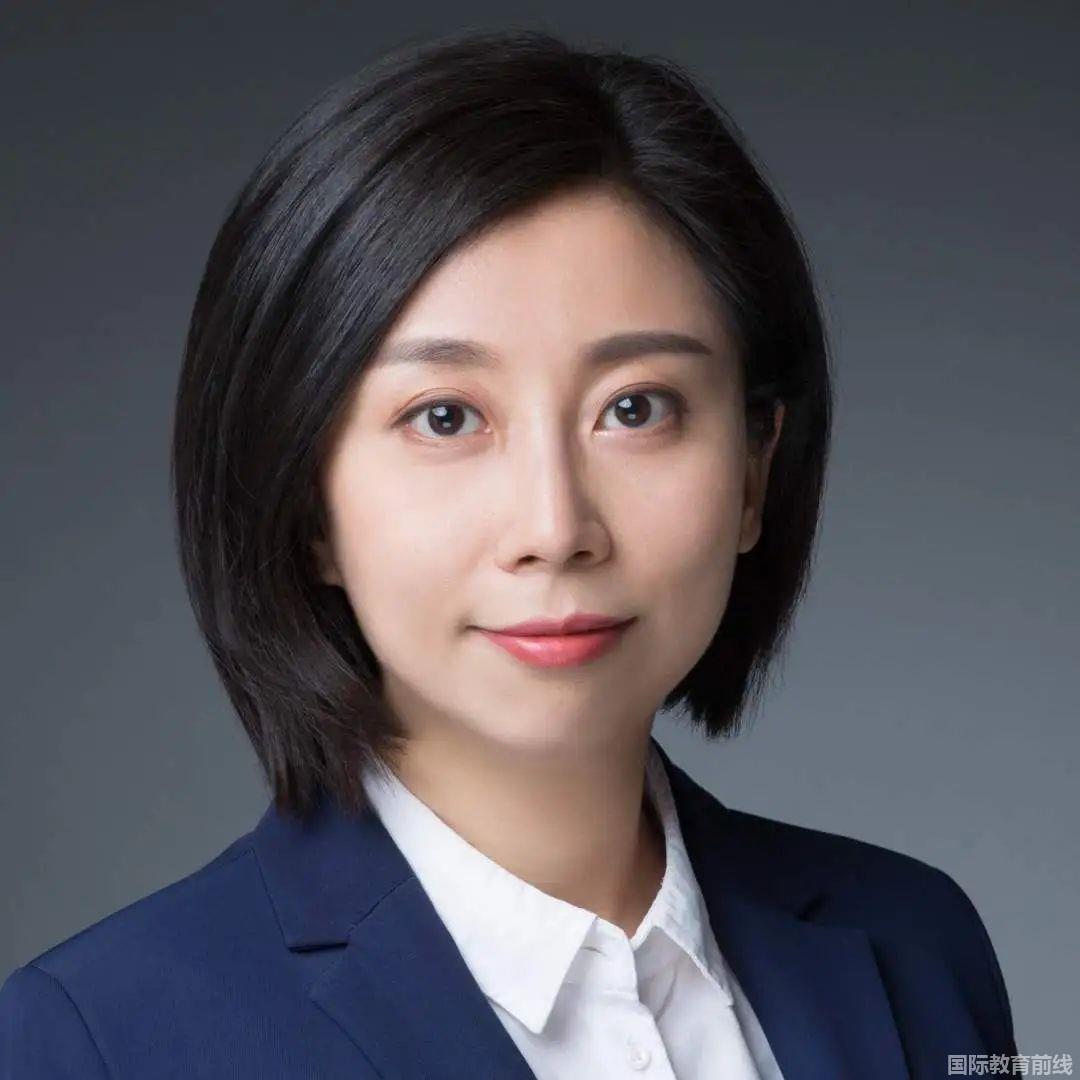
Mc: Ms. Michelle Liang, Associate Director of College Counseling,
Daystar Academy

Nick Chen
McGill University, Major in Education

Jeremy Zeng
Allegheny College,
Major Undecided

Dora Xie
Emily Carr University of Art + Design, Major in Fine Art
About Universities
Ms. Liang: You are studying in different types of colleges, please tell us about the size of your class, how is the interaction with professors and did you attend any campus activities?
Nick:Our largest class has about 600 students, and the smallest class has about 60 people. Professors and teaching assistants have 1 hour of Office Hour per week, which is about 5 minutes per visitor. And of course, we can also use the time before and after class to have a brief conversation with them. We also have teaching assistant-led classes. There are more than 200 clubs in the school, and because there are so many people, you can find friends no matter what club you join.
Jeremy: Our classes have usually 5 to 6 people, and a big class goes up to 20 people. Every class is taught by the professors, and the teaching assistants are only responsible for grading homework. We have more time to talk to our professors, and a person can have a 20 to 40 minutes Q&A appointment. There are a lot of school clubs. Soccer, basketball, and e-sports clubs, and I'm in all of them. Campus life is very rich and gives one a strong sense of belonging.
Dora: Our school is also relatively small, I usually have a class of about 20 people, and there are also large classes of about 100 people. It is also flexible to make an appointment with the professor for a Q&A time, as long as you write an email, you can generally communicate with the professor within an hour or two.



Nick's campus life
Ms. Liang: Are your studies after enrollment different from what was previously expected? Have you made any plans for the future, such as doing internships?
Jeremy: I originally wanted to major in media, but after taking some classes I realized that it might not be the right major for me. I went ahead and took some other classes. I found out that there are a lot of good economics professors at the school and I've developed good relationships with them in class, so now I have the idea that I want to major in economics. In addition, I'm also thinking about using the school's resources to get a few part-time jobs and accumulate some work experience so that I can deal with the fierce competition for jobs in the future.
Dora: After I went to college, I really realized the tough level of competition in the classes. In college, I found that there are many people who can draw better than me, and there are many people with better and more profound creativity. Therefore, I need to work on my own learning of art skills, and I can no longer learn passively as I did before, but start to take the initiative to improve my own skills, for example, practicing animation illustration and picture book creation skills.
Ms. Liang: Dora's sharing also reminds us that when applying for college and choosing courses after enrollment, we should choose the ones we have strengths in, otherwise it may be more difficult to study in college. When we discussed course selection and major selection in our College Counseling class, we also reminded everyone that when you get to college, you'll be surrounded by students who are good at the same subject as you in their respective high schools, unlike when you were in high school, your classmates are good at different subjects, and it is easier for you to stand out.
About Applying
Ms. Liang: You are all studying at your favorite universities, do you have any particular application experience you would like to share and give advice to younger students?
Jeremy: I have two suggestions. First of all, IB students are under a lot of pressure, you can't spend too much time in one area, you need to balance and manage your time well. Maybe you feel comfortable in 10th grade and the pressure is not that high, but in 11th grade you may feel very hard pressure, and in 12th grade, with the pressure of the IB exams, your pressure will be even higher. At this time, you'll also have to juggle applications and preparing paperwork for that.
Our college counselor Ms. Warehall, had experiences as a university admissions officer. I remember her saying that every day admissions officers have to read a lot of essays from applicants from different countries, and that they don't read everything, therefore applicants need to have some hooks to attract admissions officers. The hooks take more than one or two drafts to write well, you need to think for a long time to dig them out, and then communicate with your parents and teachers to make yourself stand out in your essays.
Another suggestion is to utilize your resources wisely and communicate with your teachers while applying. For example, preparing your essays takes a long time and can’t be done in one or two days. After listening to other people’s suggestions, you will realize that there are a lot of things you can change. I made good use of the school’s resources when I was preparing my paperwork, and our college counselors Ms. Warehall and Ms. Liang, both gave me very valuable guidance.
Dora: When applying to university, I had to juggle school programs, language exams, and prepare a portfolio of my artworks. The biggest difficulty for me was how to balance these tasks and overcome the anxiety. For a long time, I was in a state of worry. In the end, I would be willing to go and communicate more with some relevant teachers, and I can get some useful experience and some support.
Regarding the portfolio to be prepared for applications, my suggestion is that its theme should be more about what you truly want to express, preferably based on your real experience or real emotion, and it must show your unique self. This way, your work will be personal and "passionate".
When creating your portfolio, you can check the website of your dream schools, the works and examples of accepted students, or the school's graduation exhibition, so that you can get a good idea of whether the school's style is suitable for you or not.
Likewise pay attention to portfolio preparation time, be sure not to delay because there will always be a lot of work for you to create. If you enter the second round of admissions, some art schools will also give on demand assignments to create, which will also cost you a lot of time.
I would also like to make a special reminder here that before you decide to study art, make sure you think over and over again if this is a major that you are willing to work for for the rest of your life. Because in my personal experience, after I finished my portfolio, my love for art actually diminished a lot because the whole process of creation is actually very exhausting. So, you must consider carefully whether you really like art.




Dora's campus life
Ms. Liang: Which activities influenced you the most in your application process?
Nick: The activity that had the biggest impact on me at the time was the Social Innovation Program that I participated in at Daystar. We participated in activities from 10th grade until we graduated. The program helped us hone a variety of skills. For example, when we did a roadshow for our social innovation project, we practiced the presentation aspect. Organizing the Social Innovation Day gave me the opportunity to interact with the younger students, go into the classroom as a teacher temporarily, and share with the students what I care about. Also, the Social Innovation Program is unique and stands out and shines in our application.
Jeremy: I think there are two activities. One is the Social Innovation Program that Nick just mentioned. Daystar Academy is one of the few schools in the whole of China that has been doing this program. What's unique about Daystar is that it's not a senior-only program, but there are collaborations across grades and across campuses. This program made me realize that our learning is not just about books and grades, but that there are more issues to learn about and take action on, such as those covered by the UN Sustainable Development Goals.
The second activity was also the opportunity provided by our school to participate in the Harvard Business Competition. It was my first time participating in a business competition and the experience was very unique. We spent a long time on that program and our teamwork skills were greatly enhanced.
Dora: One of the important activities I did was also in the Social Innovation Program. In our entrepreneurship program, I was in charge of the artwork and design part. In this process, I can more clearly appreciate that when I do art as a real job or as a business, what factors I should focus on. In the Social Innovation Day, I designed some materials for the school, and I also designed the 20th anniversary logo for the school, all of these made my self-confidence in art creation stronger, which was also very helpful for my subsequent application.
Ms. Liang: I would also like you to share how you think about university rankings? How did you filter out the list of your favorite universities? Also, I would like to ask Jeremy in particular, why did you later give up going to a top 50 university in QS ranking and chose to go to a liberal arts college which is not well known in China?
Nick: Since 10th grade, our college counselors have been telling us that rankings are definitely not the only criteria for measuring a college. For me, in addition to the ranking of the school, I also consider the climate of the city, whether the area is one that I can adapt to, scholarships, the ranking of the specific program I'm applying to, the faculty/student ratio, and so on. In fact, one of my classmates will also consider the food of the colleges.
Jeremy: The university I originally applied to had a QS ranking of 19, and to be honest, the university's QS ranking was high because of the research level of its professors and its graduate program. I don't think this should be the only criterion for us undergraduates when choosing a school.


Jeremy's campus life
In addition, during the process of applying to this liberal arts college that I’m attending, the college wrote me a lot of emails. Gradually I noticed that the school was very sincere in communicating with me and made all kinds of arrangements for me properly. Moreover, my experience of attending Daystar has made me familiar with the small and sophisticated teaching of a liberal arts college. The student-teacher ratio here is very low, which gives me a increased sense of belonging.
Also, I wanted to experience a different culture, which is why I study abroad, however the university I originally applied to had a lot of Chinese students. My current college has very few Chinese, only 7 including me, which also allowed me to make a lot of foreign friends and experience different cultures.
These are all the reasons why I decided to come to Allegheny college.
About Stress
Ms. Liang: We also need to talk about stress issues, such as the pressure of studying and the pressure of Early Decision and not getting accepted to your dream school. Also, how did your parents support you during the application period?
Nick: When I found out that I didn't get an Early Decision offer, I took some time to calm down. I kept reminding myself that the college application is a process, and that I should still be able to get into a college that matches my expectations and abilities. I also distracted myself from the results of my Early Decision by investigating the Regular Decesion schools I was applying to, refining my applications to those schools, and setting myself up with another dream school.
My mom and dad are supportive of my decision in this process. They believe in my academic status and trust the advice given to me by my college counselors.
I recommend that parents encourage their children to do their own college research because when parents relay their own findings to the children, the children don't always feel the appeal of those colleges. I think that the attraction found by doing their own research is what really motivates a student to like a college.
Jeremy: Be sure to stay positive. If you have emotional issues, be sure to talk to your teachers and parents to adjust your next application plan; they will always have your back. I also agree that since college is for the student to attend, and applying to college should be left up to the student, and all the parents have to do is be supportive and encouraging.
Dora: All schools I applied to are all in Canada, so I didn't have any Early Decision issues. What I want to share is that my dad didn't understand my major at first and was worried that it would be difficult for me to get a job in the future, but as I became more and more determined about my major direction, he respected and understood me. I think the support of parents is especially important in the whole process of college application. We are already under a lot of pressure from our studies, exams, and portfolio creation, and it is very helpful for parents to communicate with us to relieve our pressure.
With more than two hours of sharing, we can only excerpt here some of the most important information. The students’ sincere sharing and the online Q&A at the end of the workshop are worth reviewing in full. Feel free to scan the QR code to watch the entire live replay!